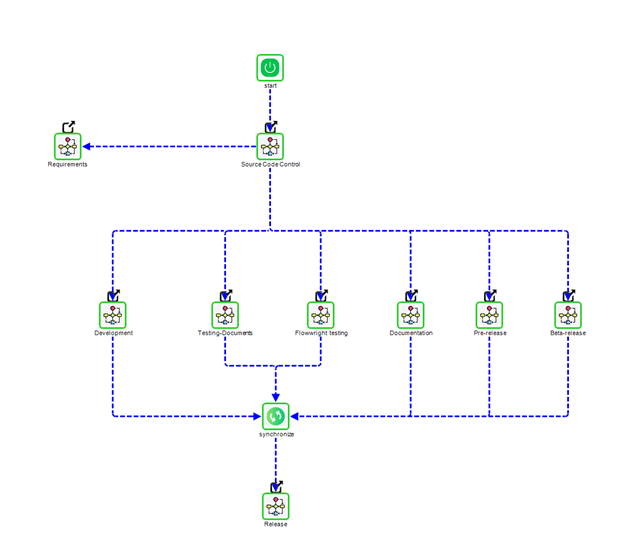In today's digital age, businesses are inundated with an overwhelming amount of data. From customer information and sales figures to market trends and social media metrics, the volume of data available to organizations is growing exponentially. While big data is growing by 10% every year, many businesses mistakenly believe that possessing this data alone is enough to drive success and make informed decisions.
However, data alone has no impact on a business without the proper tools and processes to harness its potential. This is where workflow automation comes into play, providing the necessary framework to turn data into actionable insights and tangible business outcomes. Let’s talk about that.
Data’s “Impact” on Business
Data, in its raw form, is nothing more than numbers, facts, and figures. While it holds great potential, it requires analysis and context to transform it into meaningful information that can guide decision-making. Without the right systems in place, data can become overwhelming and difficult to interpret. This is where workflow automation steps in, streamlining processes and enabling businesses to make the most of their data-driven efforts.
Let’s be clear, data can have an enormous impact on a business, but only if used appropriately. Every business needs some amount of data to maintain its enterprise, grow, and thrive.
However, data alone isn’t enough. You can store all of the data you need across multiple filing cabinets, but what value does it serve?
For data to have a true impact on your company’s mission and bottom line, it needs to have a purpose. To achieve the highest level of productivity, value, and accuracy, you’ll need automation to achieve this.
How Your Data Can Work For You
One of the primary challenges businesses face is the time-consuming nature of manual tasks. These include data entry, report generation, and analysis. When conducted manually, these processes often result in errors, delays, and wasted resources.
Workflow automation eliminates these inefficiencies by automating repetitive tasks, freeing up valuable time for employees to focus on more strategic and value-added activities. By implementing automated workflows, businesses can ensure data accuracy, reduce human error, and improve overall efficiency.
How Workflow Automation Increases Data’s Impact
Now that you understand why data alone can’t help your business, let’s talk about why workflow automation is so important for your data.
Improve Accessibility
Furthermore, workflow automation enhances data accessibility and collaboration across teams. In a traditional setting, data is often siloed within different departments, hindering effective communication and collaboration.
Programs with the right workflow automation features enable seamless data sharing and integration across multiple platforms and users, allowing teams to collaborate in real time and make data-driven decisions collectively. This ensures that everyone has access to the same up-to-date information, fostering transparency and empowering employees to contribute to the organization's success.
Increase Productivity
Another critical aspect where data alone falls short is in providing real-time insights. In today's fast-paced business environment, organizations need to act quickly to seize opportunities and address emerging challenges. Manual data processing and analysis can be time-consuming, rendering the insights outdated by the time they reach decision-makers.
By automating workflows, businesses can access real-time data, allowing them to respond promptly to market changes, customer needs, and emerging trends. This agility gives companies a competitive edge and enables them to make informed decisions based on the most current information available. These are a few key reasons why 63% of small businesses say automation helped increase their productivity since the pandemic.
Make Better Decisions
Workflow automation facilitates data-driven decision-making by providing the necessary context and analysis. Simply having data is not enough; it is crucial to extract meaningful insights that guide strategic planning and operational improvements. The right automation can analyze data, identify patterns, and generate actionable reports and visualizations.
Once in place, this enables decision-makers to gain a comprehensive understanding of the data, uncover trends, and make informed choices that align with business objectives. Workflow automation tools act as a bridge between raw data and meaningful insights, helping businesses harness the power of their data.
Enhance Customer Experience
Finally, workflow automation contributes to a better customer experience overall. In today's customer-centric landscape, businesses need to understand their customers’ preferences, behaviors, and pain points to deliver personalized experiences.
By automating workflows, organizations can collect, analyze, and utilize customer data effectively. This enables them to tailor products, services, and marketing efforts to meet individual needs, driving customer satisfaction and loyalty. Workflow automation helps businesses build stronger customer relationships by leveraging data to create targeted strategies that resonate with their target audience.
Automation and Data
On its own, data has no impact on a business without the appropriate tools to transform it into actionable insights. Workflow automation plays a crucial role in unlocking the potential of data by streamlining processes, enhancing collaboration, providing real-time insights, and facilitating data-driven decision-making. By embracing the right workflow automation, businesses can harness the power of their data, drive operational efficiency, and deliver exceptional customer experiences.
Keep reading our blog for the latest business trends, and invest in your own workflow automation today!







